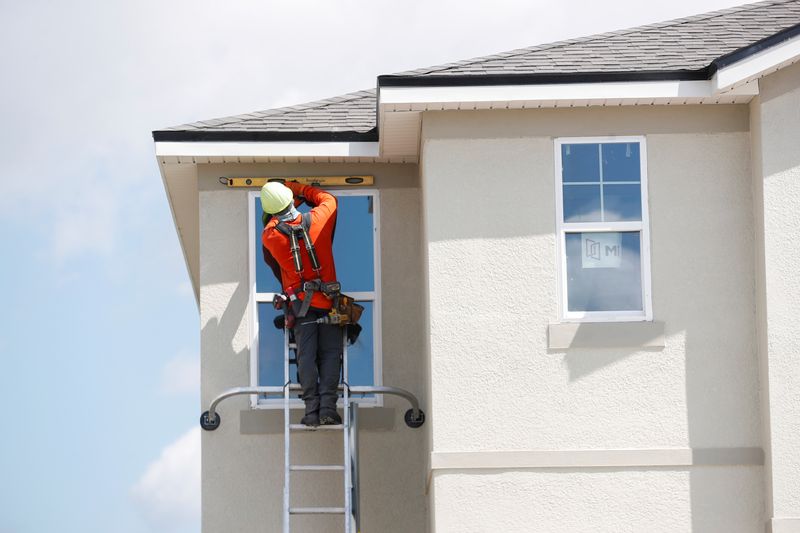US single-family housing starts surge in November
2023.12.19 10:07
2/2

© Reuters. FILE PHOTO: A carpenter works on new townhomes that are still under construction while building material supplies are in high demand in Tampa, Florida, U.S., May 5, 2021. REUTERS/Octavio Jones/File Photo
2/2
WASHINGTON (Reuters) – U.S. single-family homebuilding surged in November and could gain further momentum, with declining mortgage rates likely to draw potential buyers back into the housing market.
Single-family housing starts, which account for the bulk of homebuilding, jumped 18.0% to a seasonally adjusted annual rate of 1.143 million units last month, the Commerce Department’s Census Bureau said on Tuesday. Data for October was revised slightly lower to show starts rising to a rate of 969,000 units instead of the previously reported 970,000 units.
Permits for future construction of single-family homes increased 0.7% to a pace of 976,000 units last month.
The rate on the popular 30-year fixed mortgage averaged 6.95% last week, the lowest level since August, from 7.03% in the prior week, according to data from mortgage finance agency Freddie Mac. It has tumbled from a 23-year high of 7.79% in late October, tracking the decline in U.S. Treasury yields.
The Federal Reserve held interest rates steady last week and signaled in new economic projections that the historic tightening of monetary policy engineered over the last two years is at an end and lower borrowing costs are coming in 2024.
A survey on Monday showed confidence among single-family builders rebounded from an 11-month low in December. The National Association of Home Builders noted that “many builders continue to reduce home prices to boost sales.”
Starts for housing projects with five units or more rose 8.9% to a rate of 404,000 units in November. Activity is, however, moderating as builders work through a large stock of apartment buildings under construction.
Demand for rental accommodation is also cooling, with the rental vacancy rate rising to more than a two-year high in the third quarter. Increased supply of rental housing is one of the main factors expected to drive inflation lower next year.
Overall housing starts soared 14.8% to a rate of 1.560 million units in November. Economists polled by Reuters had forecast starts would fall to a rate of 1.360 million units from the previously reported 1.372 million units.








